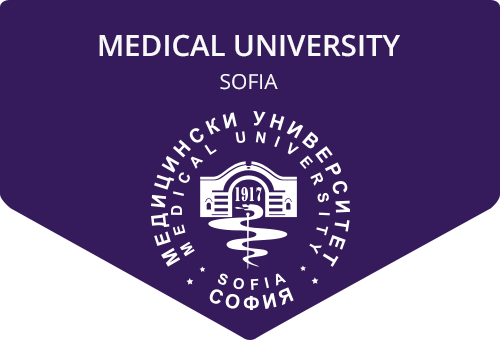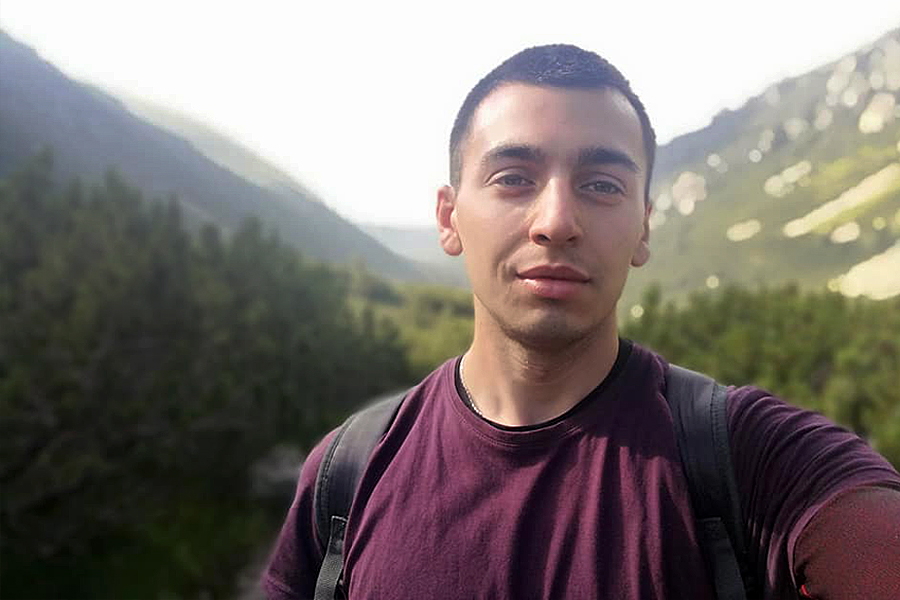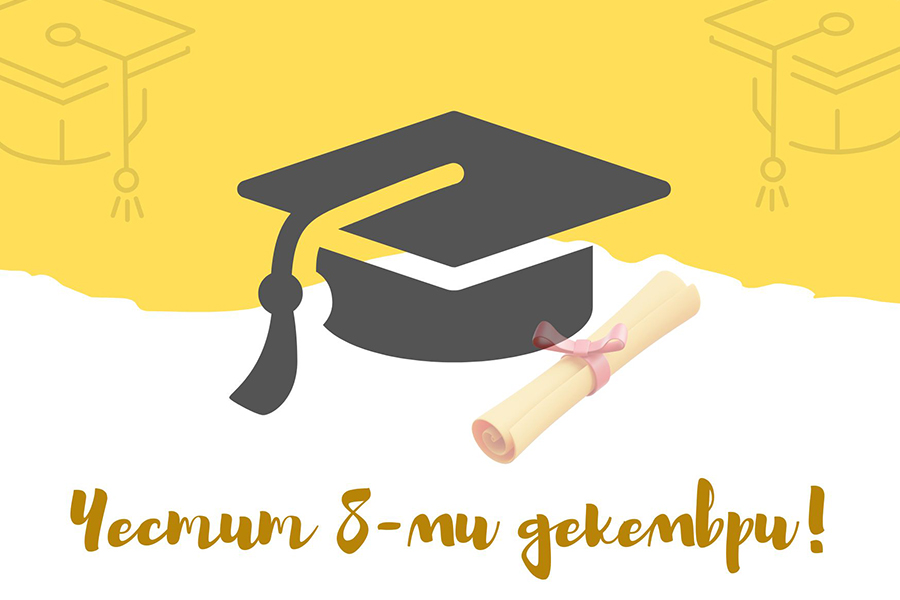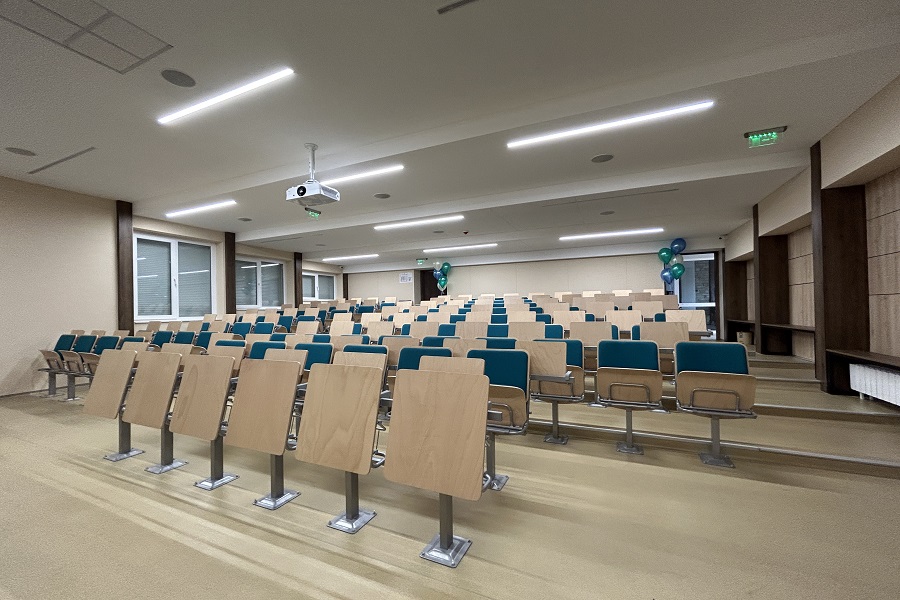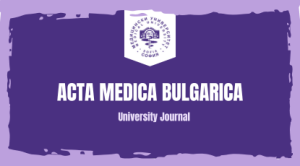An interview of our student – volunteer given to “24 hours” newspaper
I was impressed by a medical graduate who helps as a nurse. “The pandemic has taught me to believe, not to underestimate”.
– Dian, since when have you volunteered at the Military Medical Academy?
– A week.
“How did you know they were looking for volunteers there?”
– When the Prime Minister declared the state of emergency on the night of March 12th at a briefing, he announced that students may also be involved to help. I waited a few days to see how exactly this would be announced. In the meantime, I contacted the Military Academy who told me that I could volunteer there as well. I sent an email to express my wish, and they approved me. I will not forget the first question of Assoc. Prof. Georgi Popov, Head of the Department of Infectious Diseases and Deputy Head of Military Academy: “What expertise do you have?” This is the question I have always expected to be asked.
– Which year of studies are you now?
– I graduated from the Medical University – Sofia in February and am already a trainee doctor.
– Why did you decide to volunteer?
– With the state of emergency, our university classes were canceled. All I have to do is take the state exams, but since all the deadlines have been suspended, I decided to take the time with what I study.
– Do you have contact with patients with COVID-19, who are numerous in the Military Academy now? What are your duties?
– We do not have any contact with the COVID-19 patients, but we do have some in the laboratory. The clinic continues to work and we help doctors with the examinations – we take anamnesis, status, check ups, listen and consult them. We also take samples for COVID-19 when in doubt.
– How is your day organized and how often are you in the hospital?
– I’m in the hospital almost every day. Our work here begins with a report discussing what has happened at night, whether there are any new cases or new therapy. We discuss on what should be done during the day. Then we go to the cabinets – there are 3 of them and there is usually a queue of patients waiting for examination.
– How many more volunteers are there with you?
– Many are willing. There’s six of us at the Infectious Diseases Clinic, some are involved in more nursing activities. There is also a 12th grade high-school student who will be applying for medicine this year. As the undergraduate students who canceled their exams, he also decided to use his time for volunteering, which is commendable. He does sanitation, and I was very impressed. I also saw that non-medical people have organized themselves, and they are helping with organizational activities in the large building of the Military Academy. We need them.
“What do you think this pandemic will teach us, what did it show us?”
“It showed us it was time for introspection. It also showed us that people are too daring to believe that they are kings in this world, and that something so small and invisible can reverse the wind. It teaches us not to underestimate, but to believe. We can see the same situation in many other countries. No disease can be cured unless action is taken on time.
– What did you decide to specialize in when you graduated, and have you changed your intentions now?
– I will not hide that I have a great interest in infectious diseases. I have to decide after the end of the crisis what I will specialize in.
– How long would you stay volunteering for?
– We were extended until April 30 by the state of emergency at the university, so surely until then.
– Are you ready to get involved if you are also called to patients with the new coronavirus cases?
– Oh, of course. I will be the first to cross the hotline.
– What advice would you give to people outside?
– Observe quarantine and stay at home, have responsible behavior towards other people and observe hygiene standards.
– How do your doctors accept your help?
They thank us. Prof. Kamen Plochev, the head of the First Infectious Diseases Clinic, praised us yesterday that we are reviewing the cases very well and that they are very pleased with us. Our help is very important now, because doctors need to save their energy and think and prepare for what is ahead. The peak is yet to come, and we haven’t begun to send patients who were admitted 2 weeks ago back to their homes, not because they are not cured properly, but because the disease itself is taking a long time and people must keep the bed for a longer time. Today I saw that University Hospital Tsaritsa Yoanna – ISUL also announces the admission of volunteers. This help is really needed and I believe my colleagues will respond.
I also want to thank the doctors of the Infectious Diseases Clinic. They are exceptional. They are very good people, helpful and welcoming any person as part of their team. This is great, especially for someone like me who wants to study. Big thank you!
The interview took JOANA RUSEVA – 24 hours
